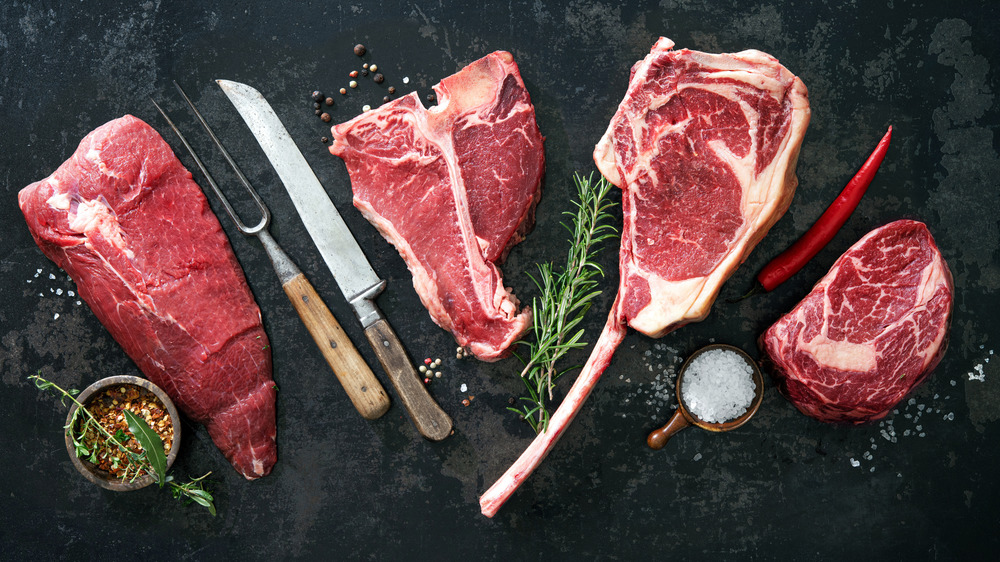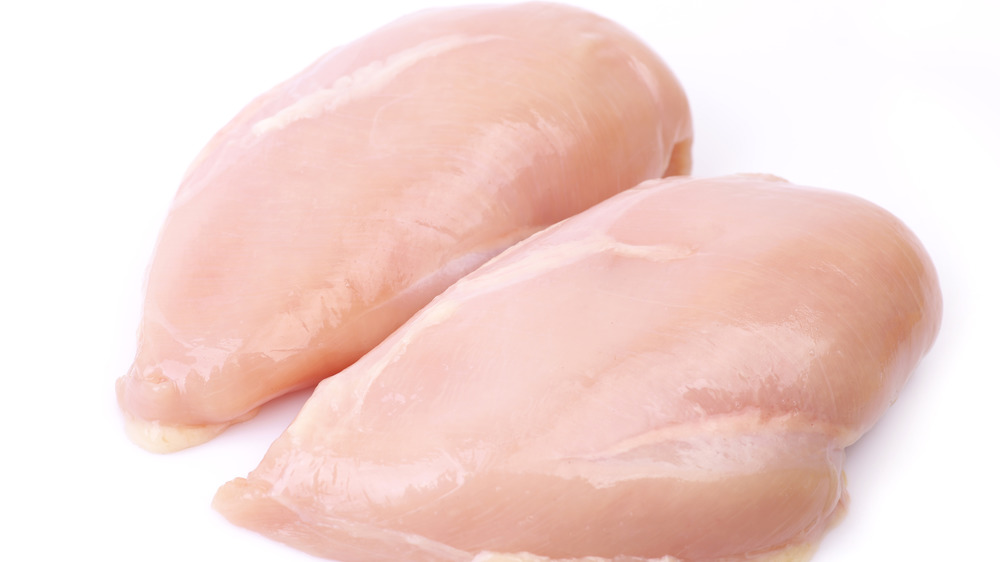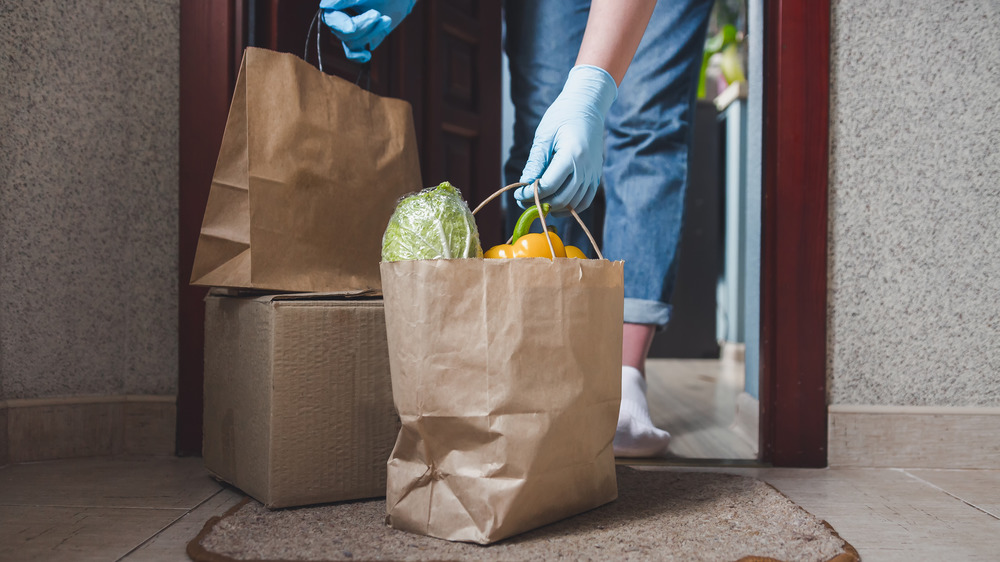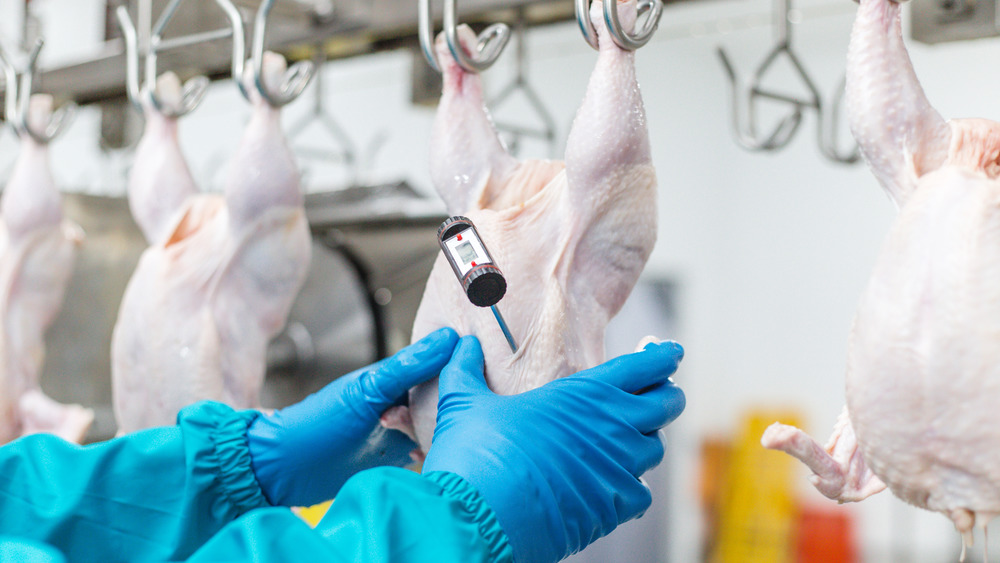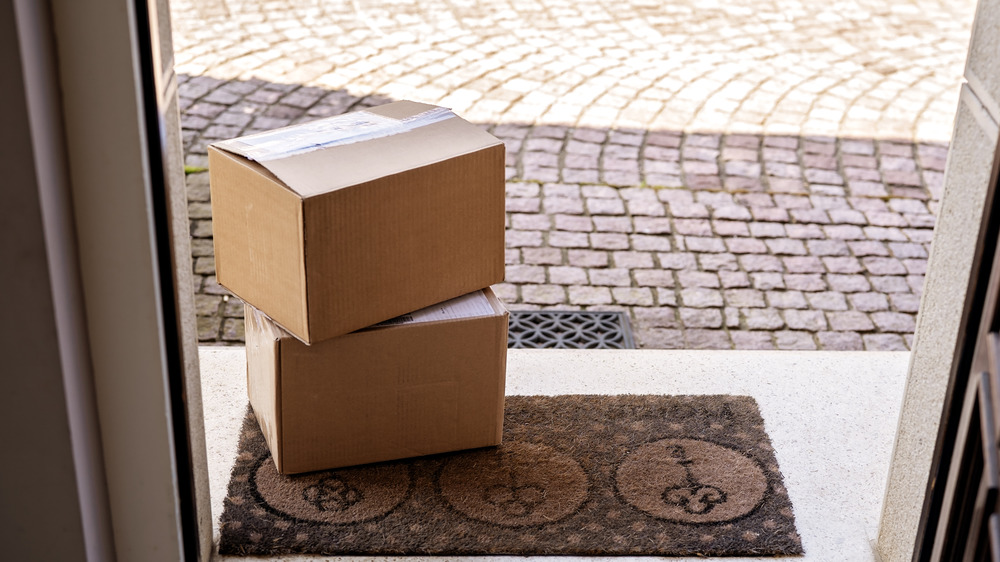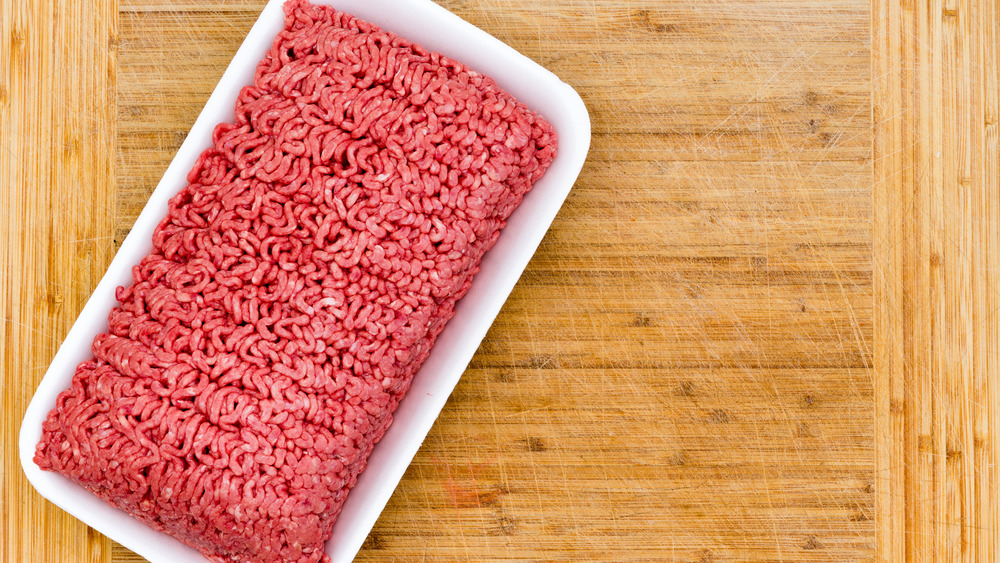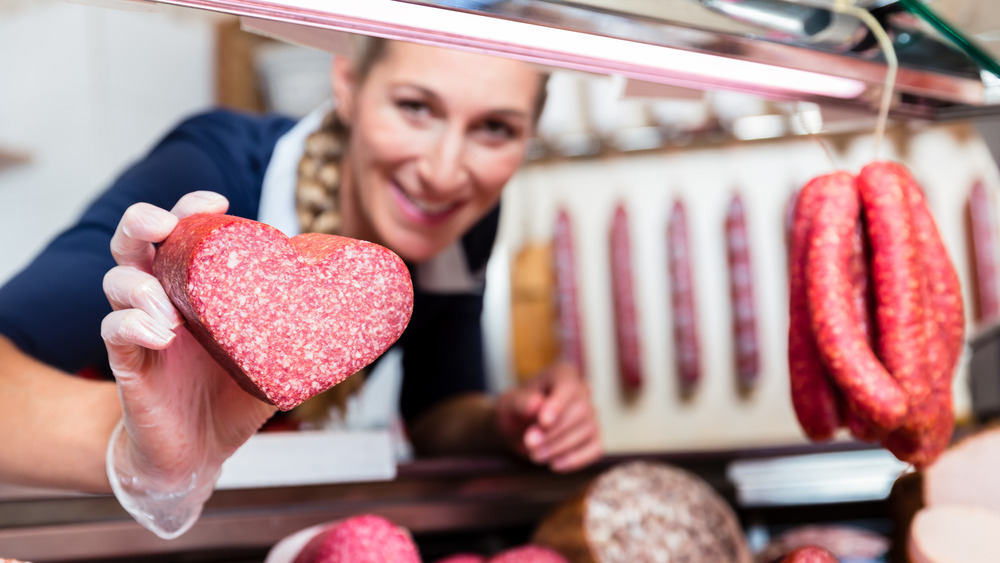Why You Should Never Buy Meat Online
We may receive a commission on purchases made from links.
Flashback to 2019 or earlier and ordering meat online — or any kind of grocery item, for that mater — was foreign to most people. But thanks to COVID-19 and people staying home more, now you can order everything from locally raised grass-fed steak, to antibiotic-free Muscovy duck, to a family-size box of frozen chicken wings with just a few clicks.
Access to quality and variety has never been better, but there's bound to be a downside (or many), from higher prices for delivery and packaging, to food safety issues, to incorrect orders showing up at your door (how do you return a thawing elk roast exactly?).
But as meat sales are trending up during the pandemic — because apparently we're all craving tacos and pasta sauce —– and many of us are still going to be cooking at home a lot more for a while, here are the top reasons why you might want to think twice before ordering your meat online.
You can't see the freshness of the meat when you buy it online
With chicken, you want to see pink flesh, not dull grey. With beef, you'll want to see the marbling on a cut like a rib eye or T-bone, with bright red flesh in between those luscious layers of fat that's just begging to be caramelized.
But with delivery, there's a chance that what shows up at your door won't look quite like the online picture. If you can't check out the product before you purchase, you'll have to trust someone else to choose the juiciest lamb chops for you. You won't be able to see the freezer burn on your frozen ground beef either. And how can you tell if your chicken breast has seen better days if you're clicking "checkout" and crossing your fingers? That's why the grocery store is still your best option if you want to guarantee that you'll get exactly what you put in your grocery cart.
Meat can't be left unrefrigerated for long
If you're not home for your delivery, there's a chance your meat could be left outside your home without proper refrigeration. That can lead to disease-causing bacteria growing on the meat when its temperature is between 40 and 140 degrees Fahrenheit, aka the "danger zone." Those bacteria, which aren't destroyed by cooking, can create toxins that lead to food-borne illness.
The USDA recommends not letting meat sit in the danger zone for more than two hours. If it's above 90 degrees Fahrenheit — say, a warm spring day in Phoenix or Houston — it shouldn't be left out for more than one hour. To be fair, you don't know how long meat at the grocery store might have been left in the danger zone either — but you're probably not in the habit of bringing your groceries home and leaving perishables on your front porch for hours, either. And it's not the company's fault anyway if you're not home when they come knocking.
Meat ordered online may not be properly packaged
To keep bad bacteria from developing, fresh or frozen meat ordered online should be delivered with something to keep it cool. There also needs to be enough of that coolant to do the job well, and it needs to be properly packed around the meat. If you do order meat online, look for a company that packages the meat snuggly with ice packs, gel packs or dry ice. The less air in the package, the better.
Back in 2014, a study from Rutgers and Tennessee State University found that of the 684 food items that they ordered in 169 shipments, almost half the samples arrived in the danger zone, and there was no way to know how long they'd been in the danger zone. A lot can change in seven years, but are you really going to have your meat thermometer handy for arrival just in case? At least when you buy meat at your local store, you'll know exactly how long it's been out of the fridge or freezer between the time you buy it and the time you get home.
Delivery delays may happen when you order meat online
If there's a delivery delay, who knows where that meat you ordered online will be hanging out? If it spends a little too much time in an unrefrigerated warehouse or a post office, that can lead to food safety issues. Even worse, you might never know it's unsafe at all...until you get sick.
If you ordered frozen meat and it arrives thawed, according to the USDA you can refreeze it, but there might be a loss of quality. Plus, if it thaws at room temperature instead of thawing safely in the fridge, it might not be okay to refreeze it after all, because those dangerous microbes are only inactivated rather than destroyed by refreezing. They can multiply and become foodborne illness once the food is re-thawed.
There's also the chance that your meat won't arrive in time for the meal at which you plan to eat it. A few red lights on your drive or walk home with your grocery store meat is a far lesser concern.
Buying meat online can be more expensive
Grass-fed beef, Wagyu, heritage chicken or organic veal? You'll generally pay even more for specialty meat when you buy it online. These companies need to make money too, and packing boxes and shipping them individually isn't nearly as cost-effective as sending a large quantity to the grocery store, which will package the meat individually for them.
Add on delivery fees, and even the ground beef you're ordering online will often end up being more expensive than what you'll find at the grocery store. As a comparison, how often has ordering a meal from a delivery app been more affordable than making the exact same meal at home? Or even than picking it up at the restaurant yourself? Not often.
And if there's an online sale, you might want to see that meat first to make sure it's still high quality before ordering. It's a lot easier to do that in person. So skip the surcharges, save the wasteful packaging, and just head to the store.
Ordering meat online just takes too much time
Time saving is a big part of why grab-and-go items are on the rise, as are fresh food vending machines. If you're looking for high quality, ethically raised meat, there will be more selection online to be sure, but even if you don't mind spending more money on dinner, you'll probably end up spending more time doing research than if you'd just popped into the grocery store for whatever steak or chop looked good.
With selection come endless rabbit holes of online searching through which to fall. So the question is: How much is your time worth to you? If you're thinking that it's worth more than being stuck with factory farmed meat because that's all there is at the store, just keep in mind that a local butcher shop will most likely have already done the careful sourcing for you. That will save you time without compromising your ethics.
Shopping is recreationalBuying meat online means you miss out on a lot of the fun
While some people hate grocery shopping, lots of people actually enjoy it. There's something to be said for strolling through the aisles, looking at brightly colored peppers, tomatoes and grapes, ogling the incredible selection of ice cream flavors and spending 20 minutes checking the ingredients in every brand of tomato sauce for the one that seems the most Italian.
Then there's the social factor, where even if you're not speaking directly to other shoppers, you're at least around other humans, which can be pretty comforting, especially if you find yourself working at home or living alone these days. Social isolation is no joke, so every bit of human interaction counts, even if it's just avoiding another person's cart in the baking aisle. We need all the fun we can get these days (safely, with masks), so go walk quickly through a space shared by other agoraphobic people and enjoy that dopamine rush as you put a bag of brownie bites in your sterilized shopping cart.
What you think you want isn't always what you actually want
You can find meat boxes and online subscriptions offering everything from elk rib racks to boar chops, but the truth is that most people just want chicken breast and ground beef, with maybe a steak or pork chops from time to time. Sure, you might want to make a rabbit cacciatore once or think you ought to try chicken thighs instead of dry chicken breast for your Tuesday night chicken Parmesan, but we're creatures of habit when it comes down to it.
So if you're ordering a box of meat online or have a subscription that comes every so often — two popular forms of online meat delivery — you might not be getting precisely what you want. How's that artisanal fennel sausage going to fit into your plans for chicken curry? And wouldn't it feel awful to waste that bison tenderloin because you didn't feel like looking up its ideal internal temperature?
You can't ask Google to debone your meat
Good butchers are worth their weight in gold. They can grind meat to order, prepare specific cuts and generally can take a lot of the time-consuming prep work out of your dinner, like all those recipes that call for chicken to be skinned and cut into six, eight, or 12 pieces. Do you really feel like spending half an hour with your hands in slimy skin to make your braised chicken with olives? Or maybe you'd like that osso buco cut to get the marrow out of the veal bones ? How about some thinly sliced beef for homemade hot pot or fondue? Besides, when was the last time you sharpened your cleaver? Do you even own a cleaver? We bet your butcher sharpened his a lot more recently. Take it from someone who once spent an evening in the emergency room after a cabbage coring incident; some things are better left to the professionals.
